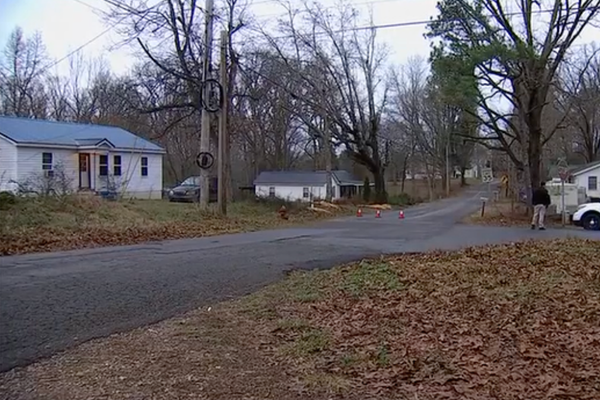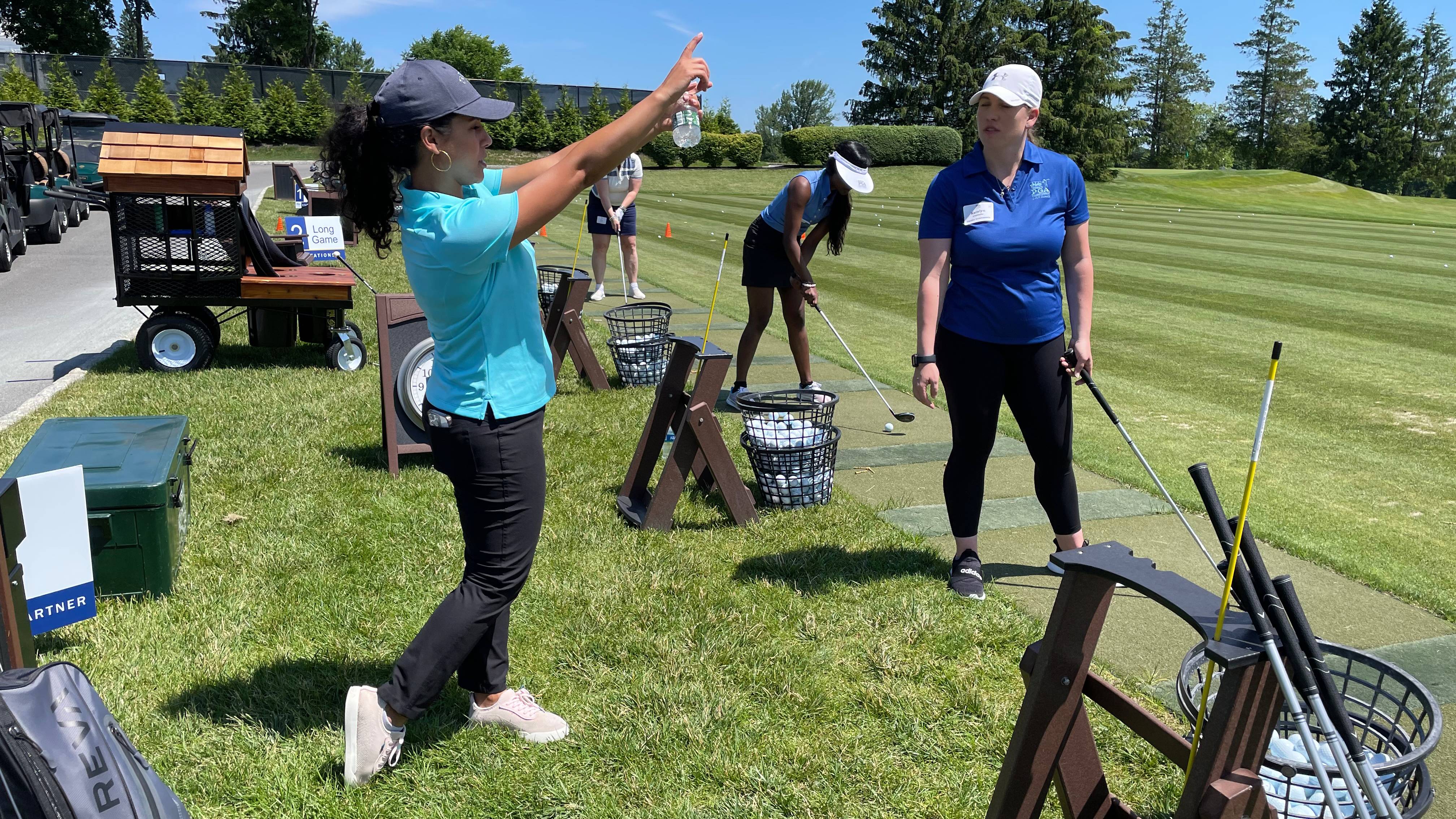
LPGA golf instructor, YouTuber, businesswoman, entrepreneur - Coach Shayain is a young woman making a big mark in golf. As a minority golfer, born in Pakistan into a family who immigrated to Canada when she was a child, she experienced, first-hand, the barriers that were in place as a young female player with a different skin colour, trying to learn the game in her teens.
Family financial constraints meant that the only sports she was exposed to were the free ones played at school. With good sporting genes (her grandfather was the wicket keeper for the Pakistan cricket team) and amazing hand-eye-ball coordination skills, she flourished in several, including volleyball, but an injury forced her to step back from the sport and led her to golf.
A chance outing to watch her brother hitting balls at a driving range introduced her to coach TJ. She put a golf club in her hands and instantly saw her potential. “Golf had never even crossed my radar as a kid, so at first I felt completely out of place. Golf wasn’t a sport I saw people like me playing. The sport seemed expensive, exclusive, and totally out of reach.”
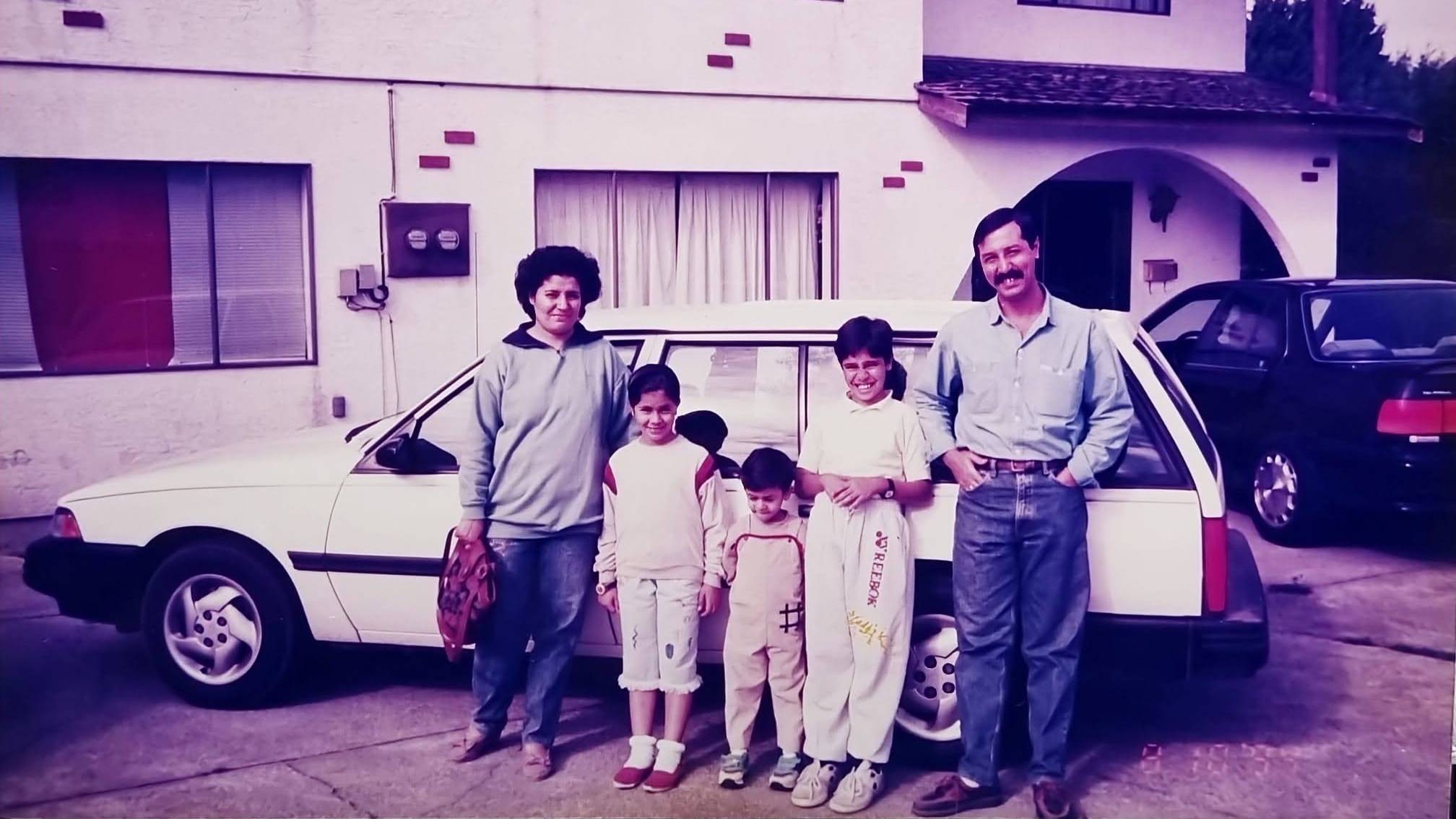
Shayain describes her time spent at the range as done in ‘secret’ because she felt too embarrassed to tell the kids at school that she played. Nevertheless she fell in love with the challenge of golf. “Every round, every swing, every putt is an opportunity to improve. It teaches resilience. The game humbles you, but it also builds you up.”
Coach TJ convinced Shayain’s parents that golf was her opportunity to open the door to a good education. A golf scholarship would give her the chance to attend a university they wouldn’t have otherwise been able to afford - it was the route to virtually a free education.
Changing Sports
“I ended up at a college in Florida on a golf scholarship, but within a week of being there, a tennis coach spotted me playing a casual game of tennis and told me he had one space free on his team and poached me, so I switched sports.”
After four years Shayain graduated with a sports management degree and started forging a successful career, working for teams like Arsenal and Orlando Magic. It was in the business world that she was reintroduced to golf.
“I was never invited to play in corporate days, I always had to orchestrate the invites, because I knew the owners. Most of them were surprised when they saw me hit a ball and then wanted me on their team. It was an opportunity to further my career as I stood out.”
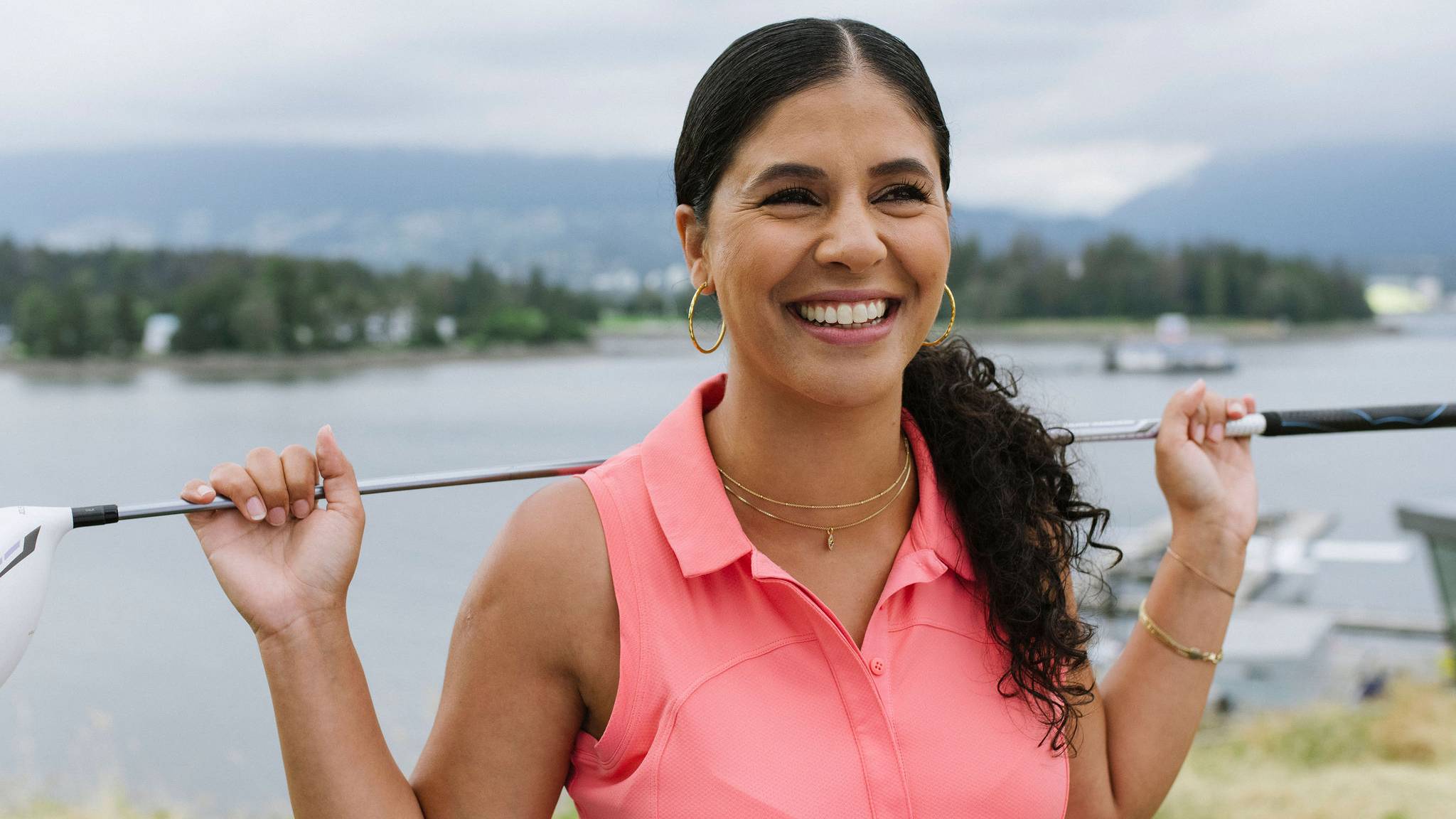
On A Mission
In 2017 Shayain moved back to Vancouver and reconnected with her old coach TJ who invited her to help take some of the junior classes at her academy on weekends.
“I was still very much a career-driven businesswoman at that time, I didn’t really see golf coaching as an income, but I loved teaching the kids. The parents saw what a great job I was doing and started asking me to give their kids private lessons, so I ended up doing my LPGA coaching certification.”
Once qualified, coach Shayain was keen to make her unique mark on the game by having her own coaching set-up, so she approached every local driving range, country club and coach asking to rent a bay. “They all turned me away. The industry wasn’t ready for someone like me. They saw me as a threat.”
But Don Grant at Mylora, a small executive golf course in Vancouver, gave her a chance. He had been taught to play golf by his mum and knew the positive influence that female coaches could have on youngsters. He also saw a real gap in the market for introducing women into golf and let Shayain have free reign of the club.
It wasn’t long before she was running group clinics for mums and kids, women’s golf days, events and much more. Working with the Women Minority Group (First Nations Girls) and Adaptive Golfers, amongst many others.
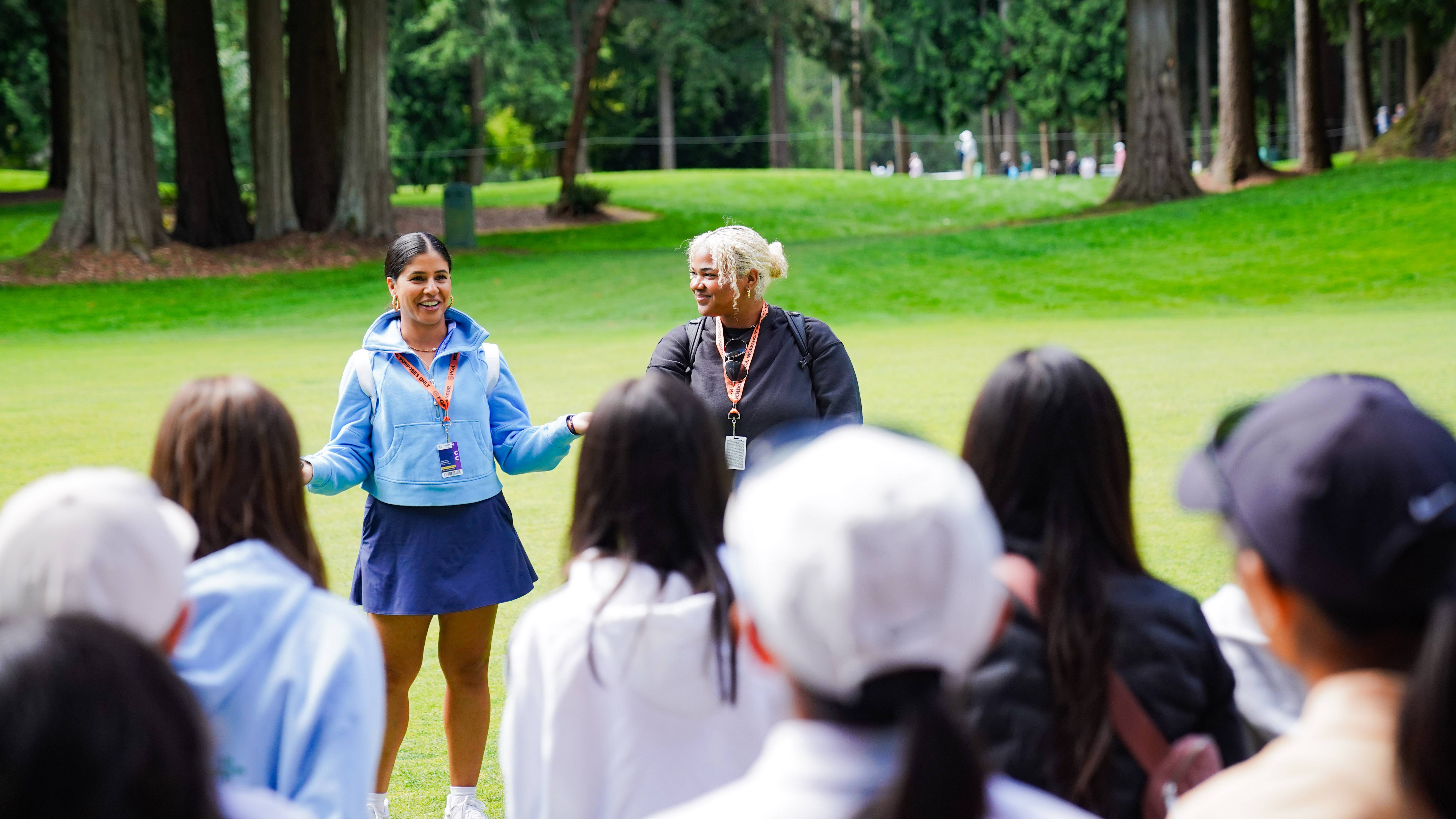
“Right from the start I wanted to appeal to a different audience,” she insists, “particularly beginners, women, and minority communities who don’t always see themselves represented in the sport.” Don convinced a local paper to run a piece about Shayain’s coaching sessions. Her phone went crazy.
“Almost overnight I had all these non-traditional golfers coming to me for lessons. Women whose kids had grown up and now had time on their hands. Younger mums with kids in school and free time during the day. They didn’t feel overwhelmed learning from me because I was a young woman myself.”
Delivering Progress
Shayain realised that for her new pupils to progress they needed to do some simple “at-home” practice, so she came up with the idea of filming videos at home using simple household items like holding a kitchen spatula or a hairbrush for these beginners without clubs yet, to rehearse their grip, posture and swing. She posted these tutorials on YouTube for her pupils to watch between lessons, not realising that a wider audience would see them and she would become a huge hit. Within a year she had over 1,000 subscribers and has since become a reputed golf YouTube content creator with over 30,000 subscribers.
“I’m on a mission to help golf feel less intimidating and elitist,” she enthuses. Shayain’s older brother, who studied communications, is her cameraman and she enjoys being in front of the camera, a natural to the spotlight.
“More than anything, I really want to inspire people who would otherwise have never taken up golf to pick up a club. The biggest barrier to golf is a lack of information and access. Families need to know that programs like Youth on Course let kids play for $5, and that First Tee & Girls Golf offer affordable lessons for young players. Once people see a pathway into the game, golf starts to feel like a sport for everyone.”
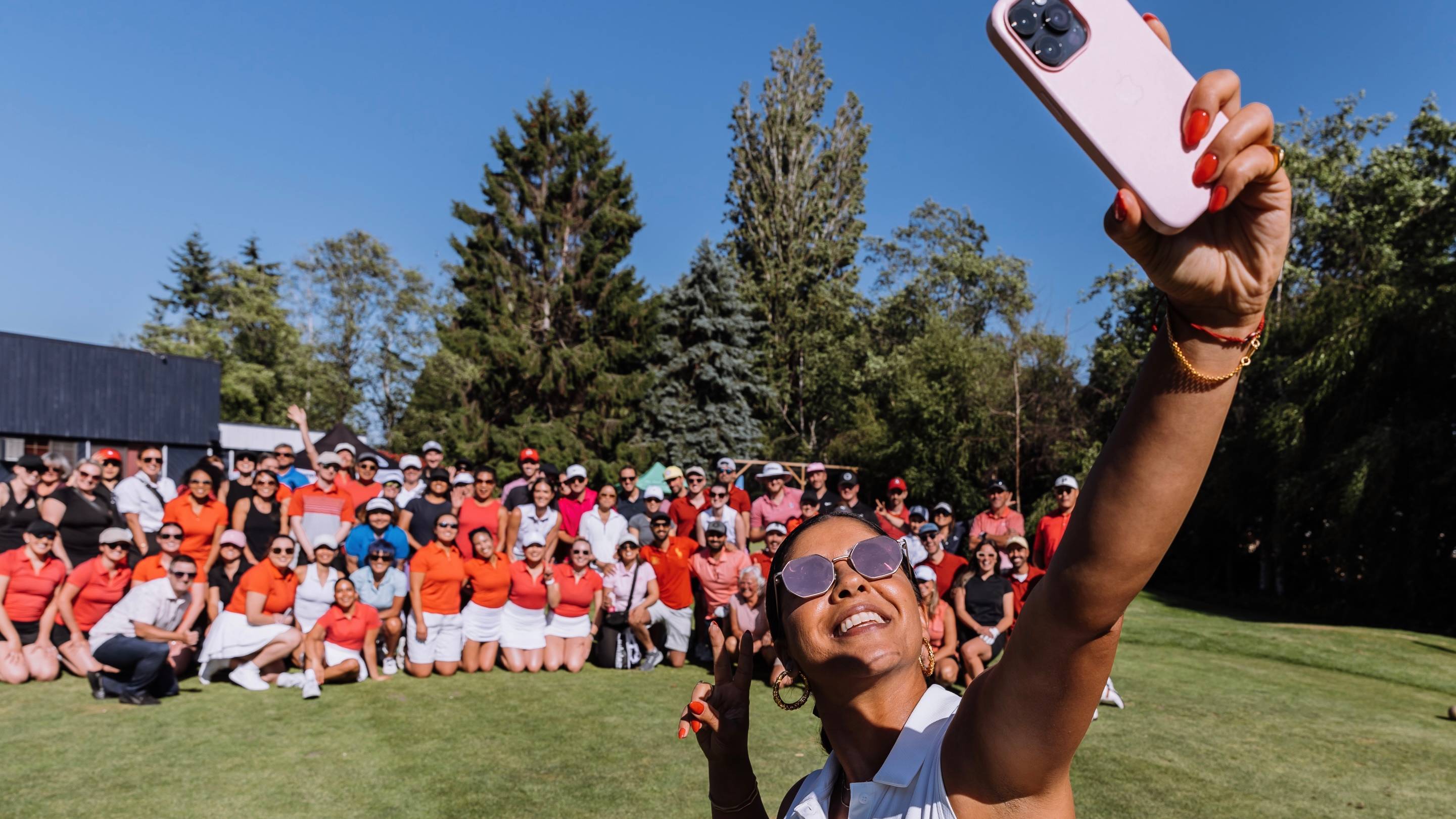
Challenging Discrimination
This was certainly something that Shayain did not feel herself, learning the game as a teenager. She struggled to see golf as a sport for all, and certainly never imagined that she could have a career in the game she loved. “Most immigrant parents want their kids to be educated to become a lawyer, a doctor, a dentist. I was fortunate to have liberal parents who encouraged me to pursue my passion for golf.”
In her YouTube series she highlights courses offering great value, rating them across five key categories - price, food, customer service, course conditions, and pace of play. “You’d be surprised at how many top-tier courses are budget-friendly,” she insists.
Shayain believes that the issue isn’t just the affordability of playing golf, it’s education and outreach. Although programs exist, they’re not reaching the communities that need them the most. “That’s the disconnect,” she explains. “If golf truly wants to be inclusive, we don’t just need diverse faces in ads, we need boots on the ground actively educating families on where and how they can start playing.”
Although things have definitely improved in the last decade, there is clearly still a disconnect between diversity and leadership. “Golf has made great strides in representation on the course, but if you look at the boardrooms, decision-makers and media figures in golf, it’s still very homogenous.”
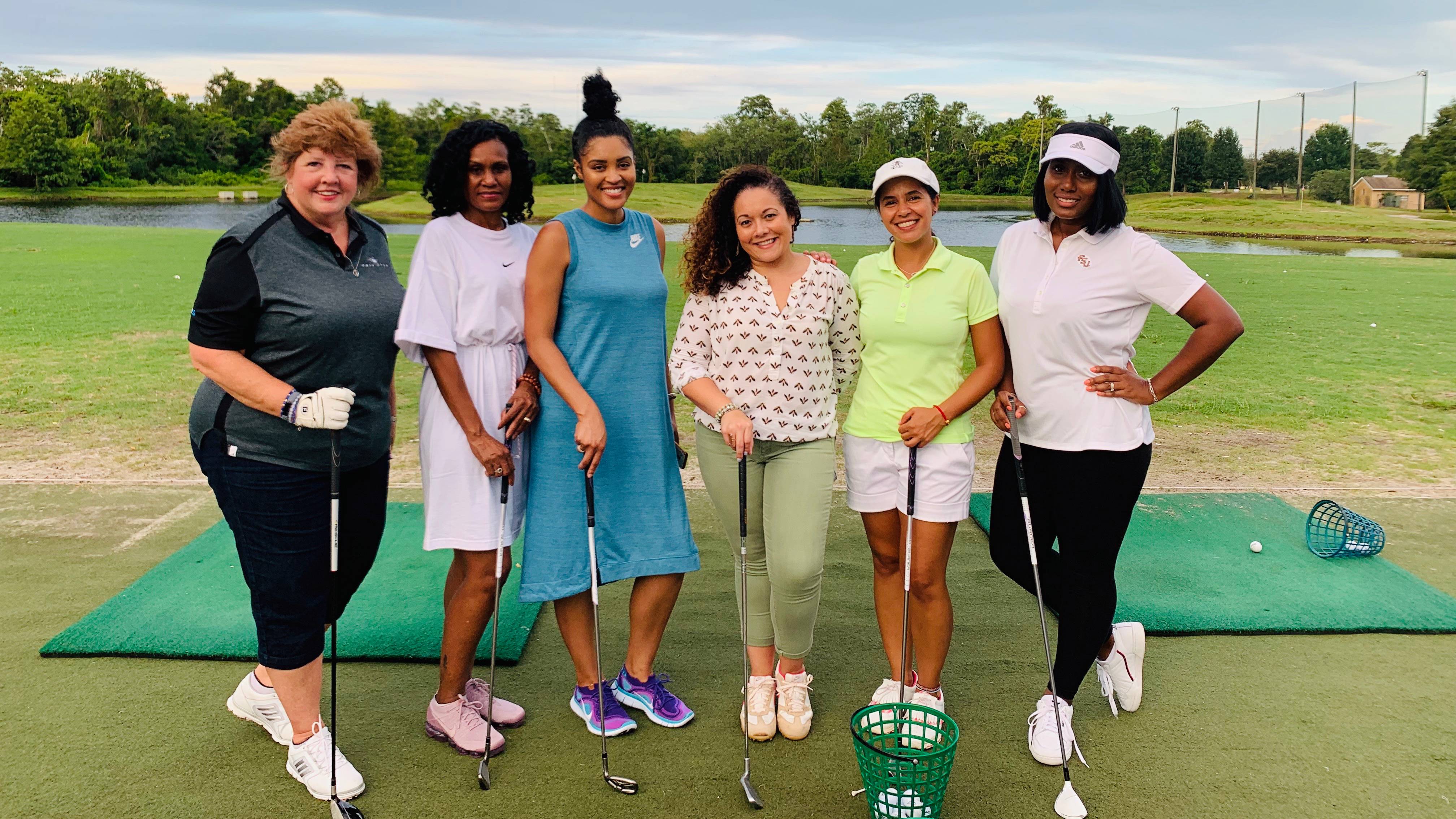
Shayain has experienced discrimination by her male counterparts on numerous occasions while attending functions, board room meetings and events. "I have been asked many times by guests, "What are you doing here?", or "Who invited you?" One gentleman even asked if I was a nanny, he thought I was in the wrong room. It was so offensive. I was made to feel like I don’t belong. Sadly discrimination in golf is still rife”
To achieve true inclusivity, Shayain says we need diverse voices at every level of the industry, not just as players, but as coaches, tournament directors, content creators, and decision-makers. She also believes that for real change to happen, it must be at grass roots level.
“We need more golf courses actively welcoming beginners instead of making them feel like they don’t belong. The stereotype of golf being elitist is still very real, and honestly, golf has done a great job of reinforcing that image. But the game has an incredible opportunity to grow. It won’t happen by accident. It will take real effort to make the sport feel welcoming to all.”
By offering free coaching, fund-raising and hosting charity days Shayain is certainly doing her part. “If I can inspire one kid, one woman, one beginner to pick up a club without fear, then I’ve done my job. The more we open the door, the more people will walk through it. Golf is ready for a shift. And I’m here to help lead the way.”



